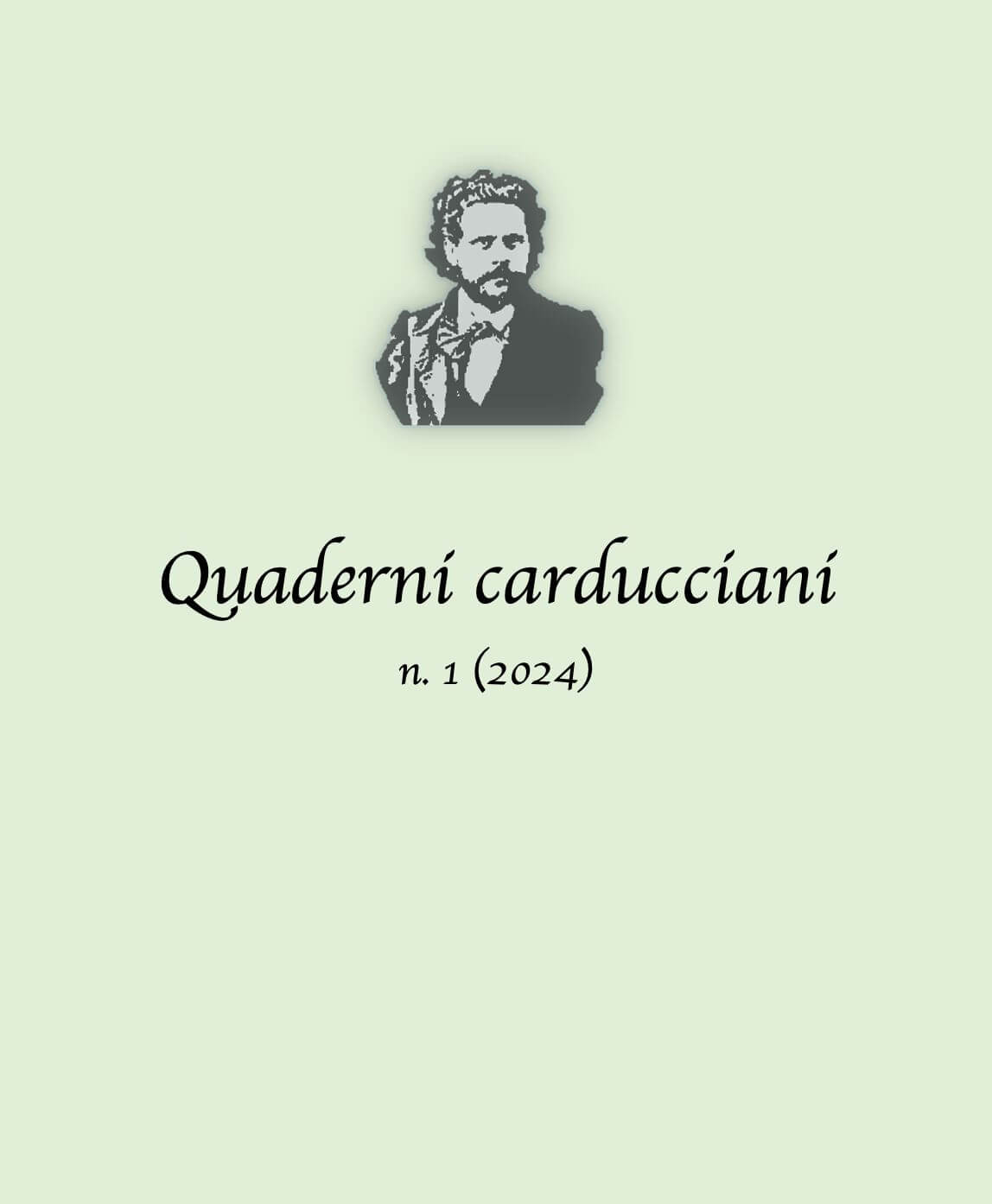Reflections on the ‘railway’ Carducci
DOI:
https://doi.org/10.6092/issn.3035-1936/20314Keywords:
Carducci, train, station, progress, self-reflectionAbstract
In his vast body of poetry and prose, Giosue Carducci does not show particular interest in the achievements of modern technology. The only exception is the train, the most noticeable and unsettling of the achievements mentioned, and as such the one most present in 19th century European poetry. It is essential to clarify that, for Carducci, trains do not refer to a single typology. In his early work, Hymn to Satan, the locomotive is treated as a form of ideology, which makes it the symbol of modernity and progress, as in many authors in the 1800s. However, an entirely different approach is found in several of his later lyric poems, where the dominant view is not ideological but existential, linked not to the utility of the new means of transportation, or to other problems of a practical or socio-economic nature, but rather to the artist’s autobiography and to his troubled and problematic existence. Memorable on this front is a work like At the Station on an Autumn Morning, in which the departing train separating Lydia from Carducci appears to irreparably shatter the poet’s past experiences as much as those of the woman dear to him.
Downloads
Published
How to Cite
Issue
Section
License
Copyright (c) 2024 Vittorio Roda

This work is licensed under a Creative Commons Attribution 4.0 International License.






